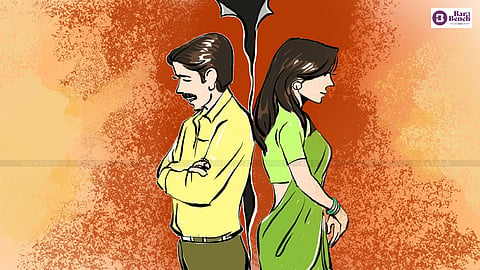
- News
- Columns
- Interviews
- Law Firms
- Apprentice Lawyer
- Legal Jobs
- हिंदी
- ಕನ್ನಡ

The Delhi High Court recently said that a wife openly humiliating husband by calling him ‘impotent’ and discussing their sexual life in presence of family members causes mental cruelty and can be a ground for divorce.